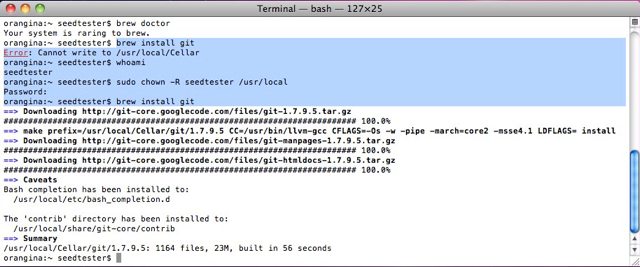


If for any reason you find yourself in need of an older version, you have to perform some preparatory manual steps first. Unfortunately, Homebrew doesn’t provide an easy, out-of-the-box way to install an older version of a package. Homebrew will make the newly installed package accessible in your default path and it’s clever enough to not do so when what you have just installed clashes with an Apple-provided package. A few seconds later, Homebrew will pick the correct version of the package matching your macOS and make it available to your CLI. Search the package you need, type brew install, and that’s all. Installing with brew can’t be made any simpler. The name is intended to suggest the idea of building software on the Mac depending on the user’s taste. Homebrew is a free and open-source software package management system that simplifies the installation of software on Apple’s macOS operating system and Linux. Here’s where MacPorts, Fink, and Homebrew come to fill the void: For all those, not App Store-privileged software, you need to either build them from source or install them via a third-party package manager. However, not all apps and utilities make it to the App Store. The simplicity of the App Store was a genius move from Apple to ease software delivery to its end-users (and make a ton of money in the process). Switch to a specific Brew Formula version from the past


 0 kommentar(er)
0 kommentar(er)
